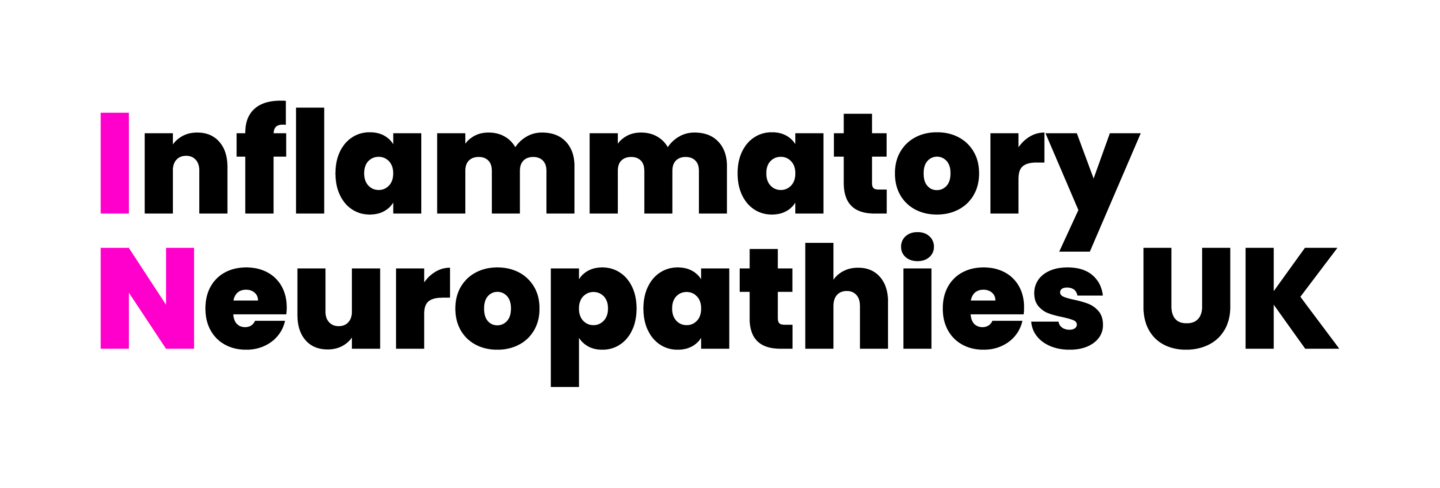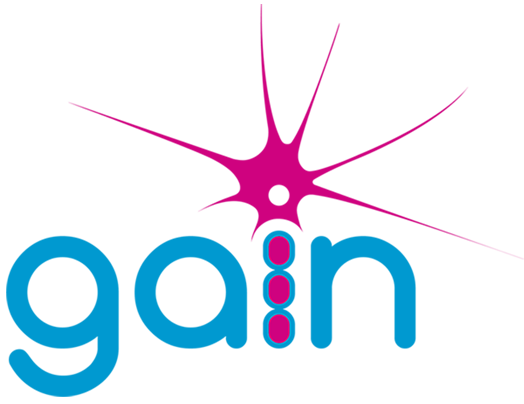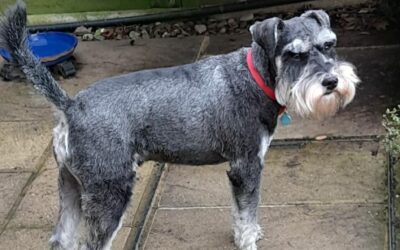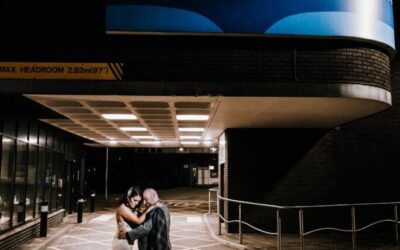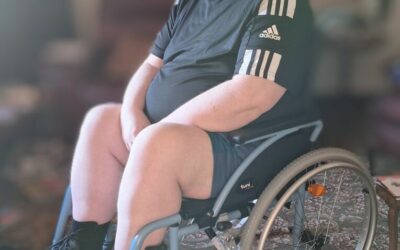5 years on from Guillain-Barré syndrome
Malcolm Hanney OBE shares his GBS journey, taking us from Kuala Lumpur to Queen Square and back again
It was Christmas 2012 and I had just completed the first semester of a Masters’ course in South East Asian Studies at the University of Malaya in Kuala Lumpur.
I was a somewhat aged student with most of my fellow and multinational students being less than half my age – but they treated me just as just one of their group. Then on Christmas Eve, and after having had a bout of flu, I couldn’t get up unaided from the table at a Christmas Eve buffet at a local hotel. My legs felt very weak and on the way back at my apartment I found I couldn’t even climb a curb. All very strange and it got worse over the next 48 hours – hands and arms very weak as well – so off to Assunta Hospital I went in a taxi. The driver wouldn’t even charge me – he said I looked so ill.
I then fainted in the Emergency department and that got me to the front of the queue! After a series of tests and lots of questions, the neurologist consultant told me I was off to Intensive Care and that I was to be treated for Guillain-Barré syndrome (AMAN variant) – not that I could have spelt it let alone know what it was. A few hours later the 5 days of IVIg treatment began. I was so very fortunate that the diagnosis and treatment was so quick and I am sure that was a major factor in my avoiding a ventilator. My consultant – Datuk Dr. Raihanah Abdul Khalid – and the whole of her team were just wonderful. Both as her patient and as a former Chairman of an NHS Primary Care Trust for over 12 years before I left for Malaysia, I could only marvel at the control and input she had over all aspects of my care.
Three weeks later I was discharged and on a plane back to the UK accompanied by my sister and my very supportive estranged wife. There was no way I was in a position to stay in Malaysia and continue my studies and I had to go back to the UK to recuperate. I did walk out of the hospital but only just – and mainly to avoid fellow students having a Facebook photo opportunity of me with a Zimmer frame. I arrived back in England to the joys of winter snow the day before my 60th birthday. Not quite what I had in mind for a landmark birthday celebration.
Over the next few months I was very grateful for the support of what is now GAIN. I was provided lots of useful reading material; an introduction to a fellow sufferer (Jon Shelton) who gave me advice, inspiration and encouragement; and an invitation to a South West event, where I met a number of other GBS sufferers all with stories to tell and to learn from. I remember at that event I watched a woman sufferer get up out of her chair unaided and without holding on – and I wondered whether I would ever be able to do that again.
In March 2013, I had a week in the National Hospital for Neurology and Neurosurgery as my balance wasn’t improving and my progress was slower than expected – despite a lot of hard work and physiotherapy. Lots more tests – including regular visits for my blood from “Dr. Acula”, an MRI scan, nerve tests, and a lumber puncture. After a review off all the test results, the eminent consultant, Dr. Michael Lunn, confirmed the diagnosis of GBS (AMAN). His contact details (as a leading GBS specialist) had been given to me by GAIN. Strangely the confirmation of the original diagnosis made me very pleased – as I had begun to wonder if I might have something even worse. That is the trouble with excessive googling.
So I just got on with the “Getting Better Slowly” process. I walked to the local village and back every day – about a mile – carrying a phone as as I knew if I fell over there was no way I could get up again. And I went to the local gym five days a week doing various exercises designed to rebuild my core strength without which I knew my balance wouldn’t improve.
I couldn’t even climb on the treadmill the first few times but then I pulled myself up and started at 1km per hour pace and tried to improve a little each day. I also went on the bike machine and did various weight exercises – 2 each for arms, legs and trunk. Not too heavy on the weights – starting small and moving up gradually. Eventually I was able to climb a step unaided – that was fantastic as that meant that I no longer fell over going into any of the 4 pubs in my village! None of the pubs had been designed for a GBS customer.
Within a couple of months, I felt well enough to make a short trip to the University of Hamburg to attend a student conference. I had thought about giving up my studies but then decided that would be a cop-out.
In late May, 5 months after the GBS onset, I made a trip to Malaysia – to arrange fitting-out works to my new apartment in Penang, which I had purchased my eventual retirement home. While in Malaysia, I went back to Assunta Hospital in Kuala Lumpur to say thank you to Dr. Raihanah and to let her, the nurses, the physiotherapists, and the cleaner know how grateful I was for their care when I had been so ill. I also bought them the biggest box of chocolates I could find in Kuala Lumpur. Dr. Raihanah said the most important thing though was that I had gone back to say “thank you” to them and that they could all see how I was recovering. She said the team don’t often get the chance to see the really good results of their labours. I have gone back a few times since for that very reason.
In September 2013, my apartment was ready in Penang but I still had to complete my Masters’ course. A few more courses to attend, a 2-month internship to arrange, and a thesis to write. So I was off again, with my satchel, to the University of Malaya and another group of young students who immediately thought I was one of the lecturers – not that they stood when I walked in the room.
I arranged an internship at the Myanmar Institute for Strategic and International Studies (MISIS) in Yangon for May-July 2014. I was MISIS’ first ever intern – and probably one of the world’s oldest interns as I was by then 61 years of age. I had a wonderful time in Myanmar and wrote various papers for them – Functional Cooperation in the South China Sea, Development of Financial and Capital Markets in Myanmar, and Health and Education in Myanmar. Two of the papers were published and they all got wide circulation within Myanmar government departments. The months of July and August were spent writing my thesis “Myanmar since 2011: Changing Priorities”. 1000 words per day was my target and achieved most days. I had already written the thesis in my head months previously but they wanted it down on paper, which was more of a challenge.
In late 2014, I learnt that I had been awarded a Masters degree (Dengan Cemerlang – with distinction). MISIS then asked me to work with them as a Senior Visiting Research Fellow, which I agreed to do on a pro-bono basis. It has been very exciting to be involved in Myanmar developments and activities as the country emerges from 50 years of military rule and economic isolation. The work has been interesting and hopefully worthwhile. I have also made many friends in Myanmar and had the opportunity to travel through much of the country.
It was well over six months after the GBS onset before I had begun to walk confidently and the prospect of playing tennis again (my favourite sport) seemed a long way off. Indeed the first time I tried to play tennis – maybe 12 months after the GBS onset – I couldn’t stay on my feet – still not enough sense of balance. That all seems a long time ago. I am now playing tennis twice a week, racketball twice a week and golf at least once a week. My tennis isn’t quite as good as it once was. However, I get to play for the tennis group of the Penang Swimming Club in club matches and in the Penang International Invitational Tennis Tournament. In that tournament I played in the 120 Age Group Doubles category – each player having to be over 60.
When lying in intensive care in Assunta Hospital or in the ward in the National Hospital for Neurology and Neurosurgery, I realised how lucky I had been to go through almost 60 years of life without any serious illness or even a broken bone. You cannot help but notice people are dying near you in Intensive Care and that many people have really tough lives when living with serious illnesses.
I am very fortunate to have recovered as well as I have. Only three minor residuals – a crooked left little finger ( I was told any operation will reduce my grip so net effect would be marginal at best); a bent right arm (I had botox injections to reduce spasticity and it is now almost straight – and I have an attractive right arm!); and I also told Dr. Raihanah that I find it more difficult to get up from sitting on the floor when previously I could spring up without holding on to anything – her response “I suggest you don’t go sitting on the floor”.
I remain so grateful to all those who gave me support when I most needed it – my friends, my family, and the professionals and others involved in my care and recovery. The quality of care and support and the generosity of spirit I experienced were so very special.
In 2016, I went on a 2 1/2 month round the world trip – Hong Kong, San Francisco, and Chicago (where I visited old haunts and saw old friends from when I worked in these places). Then Toronto seeing a primary school friend and his family – I hadn’t seen him for 27 years. After that a visit to Washington DC and 4 days of museums and a visit to Congress. I then had 3 weeks in the UK seeing my kids and other family and friends. My last stop was South Africa for two weeks visiting game reserves near Jo’burg and then enjoying beautiful Cape Town before coming home via Singapore.
Last year I also visited Thailand (Chiang Mai), Indonesia (Yogyakarta and Borobudur), Vietnam (Da Nang, Hue and Hoi An), Philippines (Manila, Cebu and Dumaguete, and (of course) Myanmar (Yangon). It is great to visit interesting places and I think I may now prefer the practical experiences of visiting South East Asian countries to any further formal academic study!
